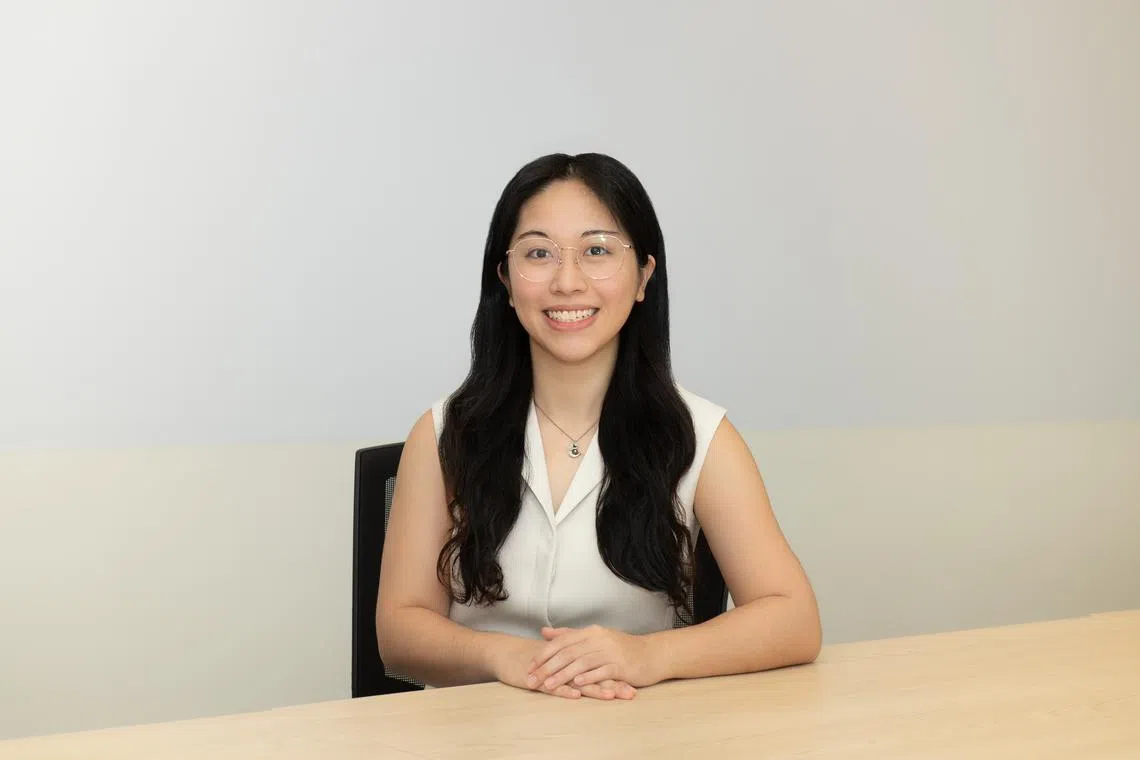Banking on quantum: OCBC to train 100 employees in quantum computing as next-gen tech shapes up
Sign up now: Get ST's newsletters delivered to your inbox

OCBC’s plans come on the back of a national push to develop quantum expertise and establish Singapore as a quantum powerhouse.
ST PHOTO: CHONG JUN LIANG
SINGAPORE – OCBC Bank aims to train around 100 employees in quantum computing over the next three years to develop new applications and strengthen defences against emerging cyber-security threats as the technology evolves.
Capable of performing complex calculations at speeds that far outstrip traditional computers, quantum computing is tipped to advance drug discovery, cyber security and artificial intelligence, among other things, but also risks leaving today’s encryption technology outdated.
Roughly 100 OCBC employees – in roles such as those related to technology, business and cyber security – will be progressively trained in quantum computing across the next three years, said Mr Peter Koh, the bank’s head of group technology architecture.
OCBC said training began in May, and that trainees were nominated by managers or were those who had expressed interest in learning about quantum technology.
The courses are a mix of online and physical workshops by OCBC’s in-house experts and courses provided by Singtel’s experts, the National University of Singapore, or online courses like Udemy.
Trainees will attend classes during work, starting with 16 hours of self-directed introductory classes to expose them to the basics of quantum computing and its impact on industries.
The trainees will then attend around 100 hours of advanced courses that are tailored to their work, such as quantum applications, programming and security measures.
Mr Koh told The Straits Times that OCBC has no plans to purchase a quantum computer yet.
The bank plans to work with partners, which it did not name, for opportunities to experiment with quantum computing for trainees involved in technical modules.
The training can potentially open up new roles in financial solutions, pricing and anti-fraud, he said. The majority of trainees will be roped in from OCBC’s existing headcount, he said, adding that around 10 per cent may be new hires.
OCBC is among the earliest banks here to begin formal training, with a goal to triple its pool of quantum-savvy talent who are at least intermediately proficient in the technology. The bank currently has at least 30 employees who are trained in quantum computing through an early version of the course.
With the earliest quantum computing applications expected as soon as 2030, according to US consulting firm McKinsey and Company, experts warn it is a signal for businesses to crack on with quantum computing strategies.
They foresee a winner-takes-all dynamic, where quantum-designed drugs could significantly outperform
Mr Koh said that the race is on for banks and operators of critical systems to develop expertise in quantum technologies, as these advancements could render today’s passwords vulnerable and lead to massive data breaches.
On the positive side, the new technology also has the potential to enhance financial predictions, as AI models will be able to process more data with greater accuracy, he added.
The basics of quantum are vastly different from traditional computing, said Mr Koh. Unlike traditional computers that process calculations using binary digits like in switches that can be either 0 or 1, quantum computers use quantum bits, which can exist in many states at once until they are measured, making it possible to solve more complex problems faster.
“We need to first build more awareness about quantum computing among our staff and to groom subject-matter experts who can build new use cases through hands-on sessions,” said Mr Koh.
To help with training, Singtel Enterprise managing director Keith Leong said the telco will provide the OCBC trainees access to its quantum-safe network, a telecommunications infrastructure built for quantum key distribution (QKD) – a secure method of sharing passcodes using quantum particles to prevent hacking by fraudsters equipped with quantum computers.
The telco is leading an effort to equip various industries with quantum cyber-security expertise and resources, focusing on safeguarding critical infrastructure.
OCBC mobile developer Alena Lim, 25, who is attending OCBC’s quantum computing courses, said the training sessions have helped her appreciate the sheer scale of data that next-generation computers can process, but also the risks.

OCBC mobile developer Alena Lim said the training sessions have helped her appreciate the sheer scale of data that next-generation computers can process.
PHOTO: OCBC
The sessions have given her ideas on applications for the bank that are worth exploring, such as quantum-encrypted bank transactions and logins.
“I think it is a good career move to learn about quantum early, since this is going to be something many industries face,” said Ms Lim, who has a degree in statistics.
OCBC’s plans come on the back of a national push to develop quantum expertise and establish Singapore as a quantum powerhouse.
The Monetary Authority of Singapore signed an agreement in August with local banks to shore up quantum security measures in financial services through research. They also agreed to study how to apply QKD.
Deputy Prime Minister Heng Swee Keat in May announced a $300 million investment top-up
The technology, Mr Heng said then, holds the promise as the next wave of technological advancement.
Globally, the quantum sector is estimated to be worth some US$1.3 trillion (S$1.75 trillion), according to estimates from McKinsey.
Tech giants such as IBM, Google and others from China have made headway in the race to build a quantum computer, but have yet to release it to the market.


